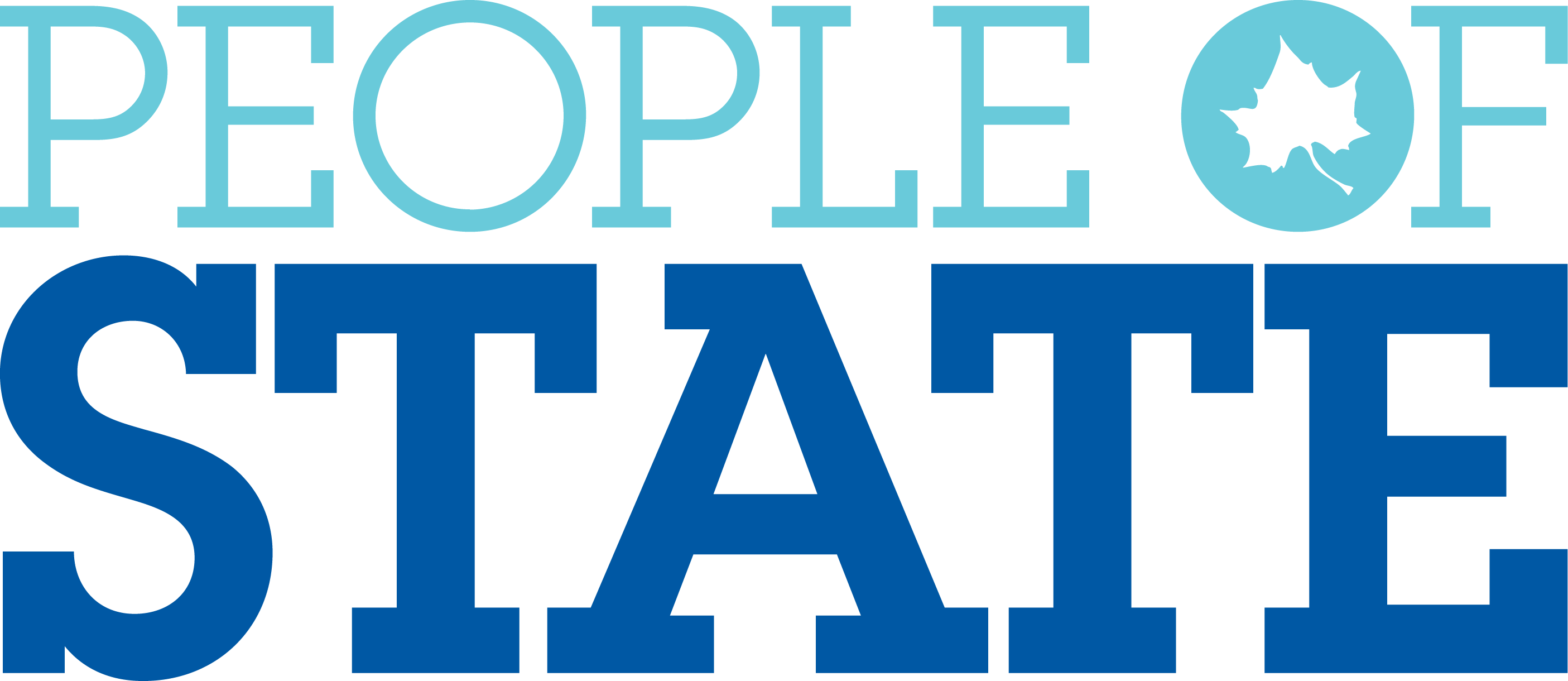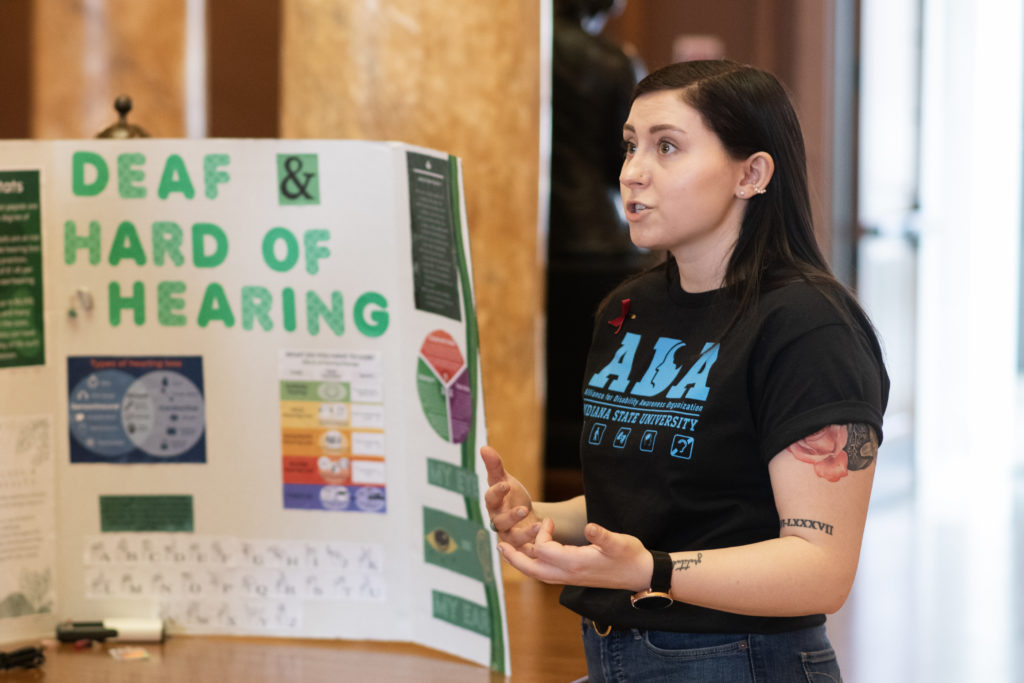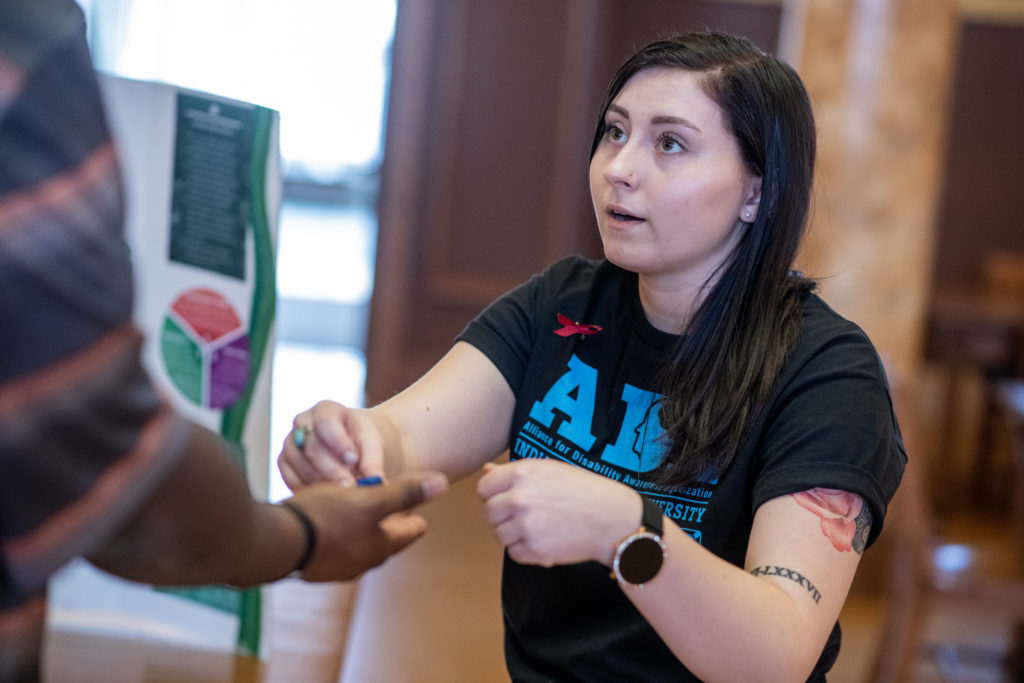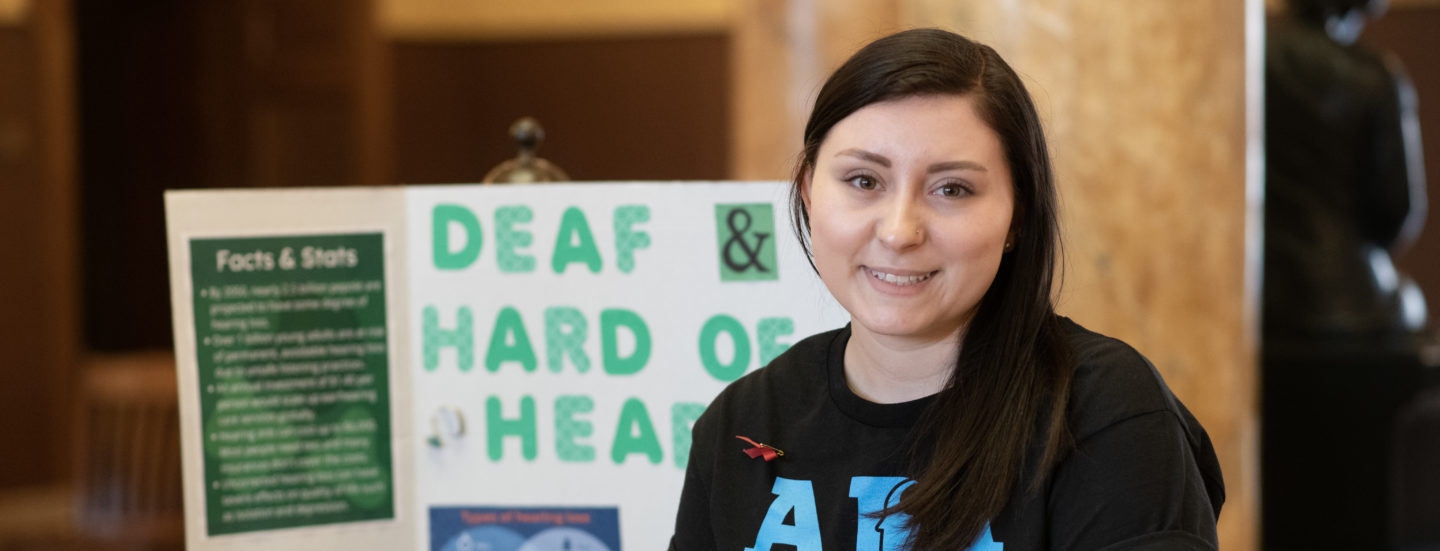
Anna-Marie Carver
By University Marketing
Apr 29, 2022
Psychology major and pre-med senior Anna-Marie Carver, ’22 is on a mission to bring awareness and better accommodations to Indiana State’s campus for people with disabilities.
Upon first meeting Anna-Marie, you likely wouldn’t notice her own disability. Carver is deaf in her right ear. She was born without one of her stapes bones and an ear canal that was closed off. She underwent four reconstructive surgeries, beginning in first- to third- grade and again in her junior year of high school, to help gain hearing and make her ears appear physically similar.
“In 2017, I had a final surgery with a new implant device to amplify the sound waves to get down to my inner ear, but the device got dislodged during the healing process, and I went from severe to profoundly deaf in my right ear within three or four months,” Carver said.
She decided against more surgeries; instead, Carver often wears a high-grade medical hearing aid, though admits she sometimes chooses not to wear it.
Carver has participated in the Gregory S. Fehribach (disability advocate and attorney) internship program with Eskenazi Health in Indianapolis each summer for the past three years. She found out about the program through Indiana State’s Career Center. The opportunity is offered exclusively to students with disabilities.
“The purpose is to help build a toolbox for students with disabilities once they leave school, (to) learn how to navigate the world on their own. With that, I noticed that every student in the program is at a different spot in that journey,” Carver said.
At Eskenazi Health, Carver worked with the Level I trauma team alongside surgeons, which is what she aspires to become.
“I was able to learn to navigate my hearing loss in loud, intense trauma codes and conquer my fears of potential limitations as a healthcare provider with a disability.”
Carver was inspired by workshops and speakers hosted during the two-month-long summer program. It’s where she learned to implement advocacy on campus for students with disabilities. She joined the Disability Service Advisory Board (DSAB) at Indiana State as the only undergraduate on the board. Carver uses her voice to help represent a wide variety of students with disabilities. As she explained, not all disabilities are visible – students might have Autism Spectrum Disorder, PTSD, diabetes, or another invisible disability.
In fact, it was Carver’s hidden diagnosis of generalized anxiety disorder that inspired her to found the organization ADA (Alliance for Disability Awareness).
“That was a big part of pushing for our organization on campus, to make sure that we include students that have those diagnoses. Because it’s very hard advocating for a hidden disability, especially when it’s mental health.”
In spring 2020, ADA had enough members to become an official student organization. Carver’s three main principles for the ADA are: create a safe space for students; identify and recommend more inclusive policy changes for the university; and provide networking and career development, which the Career Center has partnered with ADA to assist.
“[Additionally] each semester we try to pick a project that seems really pertinent on campus to try to change,” Carver said.
One of ADA’s accomplishments last semester was implementing priority registration for students with disabilities. They are now the first group of students to pick their class schedule.
“Maybe there’s a building that’s a little bit easier to get to if they’re in a wheelchair. It allows for more flexibility and a lot less stress during that already-kind-of-stressful process.”
The biggest obstacle for ADA has been spreading awareness, Carver said. Most recently, the group held an event in Normal Hall. Students gave presentations over different disabilities and ways for faculty to better accommodate some of those needs. Carver’s presentation (for deaf and hard of hearing students) suggested that faculty provide closed captions and transcripts for content that might not be easy for every student to hear or understand.
Carver has laid the groundwork for ADA to continue on campus after she graduates. She knows there are many hurdles ahead and other projects she’d like to see completed to better help Sycamores with disabilities. She’s optimistic for the group’s future.
“I hope that it’s something more people are aware of on campus after I’m gone,” she said. “I think we are set up for success.”
